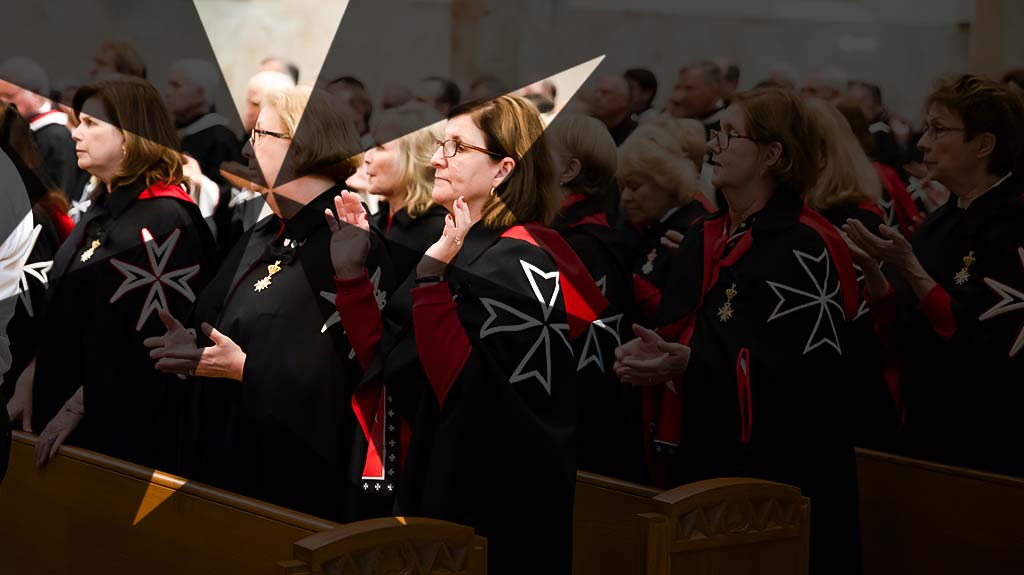Reflection for May, 2018
The liturgical season of Advent is the time most appropriately focused on the Blessed Virgin, but popular devotion lays claim to May as “Mary’s Month.” Identifying Mary with May is a custom extending back nearly a thousand years, but we are told the practice became firmly established in the 18th Century, when Jesuits in Rome instituted Marian devotions to counteract unseemly student gatherings and celebrations during the month.
Members of the Order of Malta have special reason to rejoice in Mary’s company during this month, and to embrace her example, as we embark upon our annual Lourdes Pilgrimage, a powerful reminder of Mary’s ceaseless intervention on behalf of her children. For one hundred sixty years Lourdes has drawn the faithful who seek God’s physical healing. And yet, the quest for physical health that draws pilgrims to Lourdes is only a sign of the deeper, spiritual healing Mary calls us to embrace. During the eighteen visits Mary paid to Bernadette in 1858, she said nothing about bodily health, but told Bernadette to pray for the conversion of sinners. After the eighth apparition, Bernadette faced the crowd that had followed her to the Grotto and said, “Penitence!”
The gospel accounts relate Jesus’ healing a number of individuals who are ill. These are dramatic events, to be sure, but the illnesses that beset humankind are symptoms of a deeper illness that affects Creation, as a result of sin. To heal an individual brings God’s Kingdom one step closer to us, and drives back the reign of darkness. We reasonably rejoice when someone we love is healed after bathing in the frigid waters of Lourdes, but we must never forget this restoration of an individual’s physical health is an invitation for each of us to embrace the spiritual healing Christ offers if we are willing to accept His invitation to repent.
Mary is not only the first to preach the Good News. Pope St. John Paul II reminds us she is also the Church’s first tabernacle. Mary shows us that we must take God’s word into our hearts. We must let it grow there, take on flesh and blood until, like her, we can present Christ to the world. What this requires is the poverty Jesus commends in the Beatitudes – emptying ourselves of “us” so that we can be filled with God. This opens up all sorts of hopeful possibilities – “From this day all generations will call me blessed!” Mary cries – but it is also closely allied with poverty and humility.
Sadly, these virtues are commonly misunderstood. The humility that makes us God’s handmaids is not the lack of a good self-image; the poverty that will get us into Christ’s kingdom is not just economic necessity. What Mary calls us to is a radical honesty: realizing that compared to the rest of God’s creation we are magnificent beings, but acknowledging that next to God we don’t count for very much – until God decides to use us.
Almost everyone says she or he is deeply touched by a visit to Lourdes. One of my Dominican brothers observed, “I came as a tourist; I left a pilgrim.” Those taking part in this year’s Pilgrimage have the immense blessing of approaching spaces made sacred by the footsteps of countless other pilgrims. But we must remember that Lourdes, like Calvary, is not simply a place on a map; it is a place in our hearts. Those who cannot take part in the physical journey are our priceless companions in prayer, and the Mother of God unites all of us in a loving challenge to follow her selfless example. The world continues to long for the human face and the human touch of Christ, and Mary shows us that we have to provide them. At the cost of ourselves.
Our Lady of Lourdes, pray for us!

